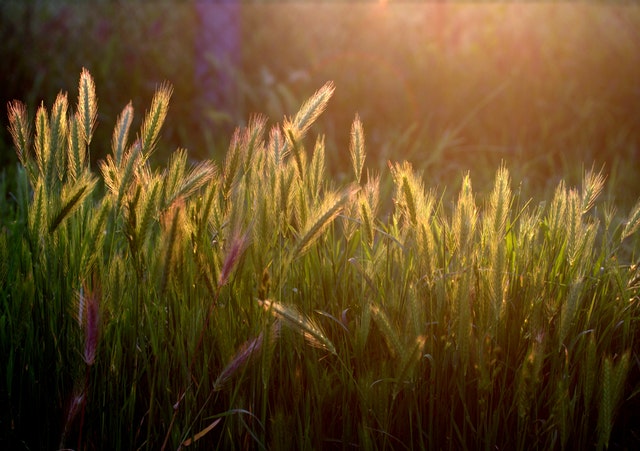The mulch you laid down to protect your soil can stay there for a while or it can just as easily get taken up by the wind and end up in places you don’t want it. So here are some neat ideas to prevent mulch from blowing away.
Not only does it stop the advantages of mulch from happening but it also makes your outdoor space messy and a pain to clean up. High winds may even present problems such as snapping plant stems or damaging your plants.

This article will tell you how to stop your mulch blowing away no matter what type of mulch it is including straw, rubber, leaves, bark, or wood chip mulch like cedar and pine.
Table of Contents
Use netting
This method is simple enough. Buy a net from somewhere such as this one from Amazon and pin down the net over the area you want you mulch to stop blowing away. You can also get biodegradable netting that you don’t have to remove when you no longer need it.
Pros
- Great for use on steep slopes
- Biodegradable nets can also help seed crops and protect them from rain too
Cons
- Expensive when used over a large area
- Can defeat the point of having mulch in the first place by not allowing fresh air and light to the soil
Use heavier mulch
Using heavier mulch is a great way to stop the wind blowing it away. Bear this in mind when making a decision to purchase mulch in the first place. Heavier version of mulch may include stones, shredded bark or wood chips as opposed to straw or saw dust.

Pros
- Heavier mulch is likely to be more durable and able to be re-used. For example wood chips
Cons
- May need to buy new mulch even if you have already bought some or own some just for the purpose of it being heavier. Making it an expensive choice.
Add water
Sometimes the solution is simpler than you think. Simply adding water can make the mulch heavier and less likely to be blown away. Also, water makes things stick to other things wet. This would be especially useful if dealing with sawdust, straw, wood chip or leaves because these organic compounds are likely to absorb the water.
Pros
- Extremely cheap
- Can happen naturally if it rains
Cons
- When the water dries this is no longer effective. Keeping the ground wet may be hard to implement
- Not all types of mulch absorb water so water is not effective at preventing all mulch from blowing away. For example, rubber
Raise the edges of garden beds
This will help contain the soil and mulch within the container or gardening bed you are using. To do this you can add bricks or breeze block along the edges of your garden beds to create a barrier.
Pros
- Long term fix that can work for multiple season of gardening
Cons
- May be quite a bit of work to install. Especially if you don’t have the tools or resources.
- Could be expensive to buy materials
Install wind breakers
While wind breakers are often used for camping, you can easily use the same type of wind breakers in your garden as a temporary solution to fix your mulch blowing away.
Wind breakers can be bent and shaped to cover the right amount of soil you want and effectively block the wind. Check out an example below.
Pros
- Can stop the wind completely over a short distance
- Can be easily taken up and put in a different place in your garden as and when needed
Cons
- Can be an expensive solution to a relatively small problem
- Can only be used over a relatively small area unless you buy multiple wind breakers
- May look unsightly or ruin the experience in your outdoor space to have this up for more than a few days
Avoid windy days
This is a simple solution that may be overlooked. Simply laying down your mulch on days that are less windy and waiting for the mulch to settle down and for weeds and other organisms to embed the mulch in to the oil would be a great solution.
I’d recommend to find a week where you no longer have aggressive winds and lay down your mulch then,
Pros
- Cost free
- Great if you live in an area where windy days are less frequent
Cons
- May not work for all types of mulch that may take a while to settle down in the soil like leaves for example
- If your area is always a little windy then this method doesn’t work
Plant cover crops instead
Cover crops are grown entirely with the intention of protecting or improving the soil underneath. Much like mulch. Therefore, if you were using mulch for the same reason, you can grow cover crops instead, and not have to worry about them blowing away.
This is great solution if you are planning on leaving mulch on your soil over the winter as the plants can really take root and

Some common cover crops that you could buy are:
- Cereal rye
- oats
- grasses
- Winter peas
Pros
- Can also reduce the number of weeds
- May give your outdoor space a neater, tidier appearance
- Easy to remove the following season
Cons
- If your plan was to plant mulch with the intention of stopping water being evaporated from the soil so quickly, using cover crops instead will have the opposite effect and dry out the soil more because they are plants that have their own root system and water uptake.
- Cover crops will take a while to grow so will not be an instant fix


